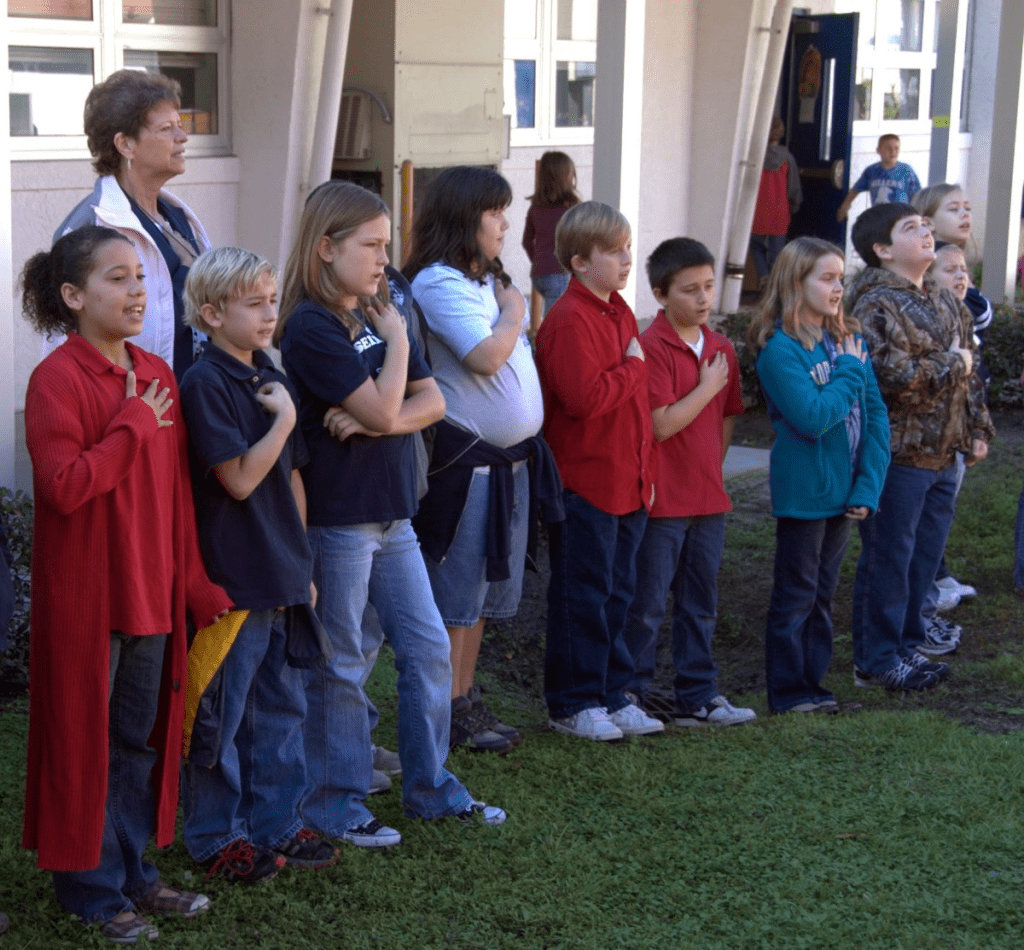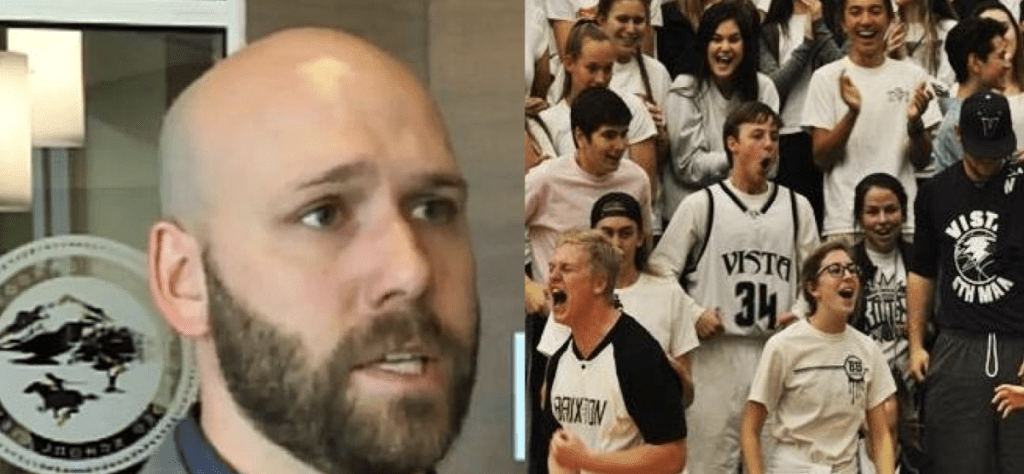A recent decision by Vista Del Lago High School in Folsom, California, has sparked controversy and ignited a passionate debate over patriotism, freedom of expression, and inclusivity. Students at the school, who frequently chanted “USA” during sporting events and rallies, were suddenly asked by school officials to refrain from doing so. The reason? Concerns that the chant could be perceived as intolerant or exclusionary. What followed, however, took everyone by surprise and left school officials questioning their decision.

Vista Del Lago High School students had long embraced the chant of “USA” as a rallying cry during sporting events and school rallies. To them, it was a symbol of pride, unity, and patriotism. However, school officials recently brought up concerns that the chant, while typically positive, could be misinterpreted as being exclusionary or even offensive in certain contexts.
The school’s principal sent an email to district families explaining the rationale behind the warning. According to the email, the concern was that the chant might “communicate an unintended message” in situations where it could be perceived as derogatory or divisive, particularly in a diverse school environment. The warning was also conveyed to students over the school’s public address system, causing immediate backlash from both students and parents.
Unsurprisingly, the announcement did not sit well with many students, who felt that their expression of national pride was being unfairly restricted. Ryan Bernal, a senior at the school, voiced his confusion and frustration. “I wasn’t angry, but I was definitely like, ‘Why can’t we chant USA?’” Bernal told KOVR, a local news outlet. “To say USA, you know, we’re all the same. We’re all American. It doesn’t matter what your skin tone is or where you’re from.”
This sentiment was echoed by many of his peers, who felt that the chant was a unifying expression of their identity as Americans. The idea that their patriotic chant could be seen as anything other than positive struck a nerve, and students began to push back in ways that left school officials reeling.
In response to the school’s decision, the students at Vista Del Lago High School didn’t simply comply. Instead, they chose to double down on their expression of patriotism. At the next sporting event, rather than silence their voices, students chanted “USA” louder and more proudly than ever before. Their collective voices echoed through the stadium, a powerful display of unity and defiance against what they saw as an overreach by school officials.
The students’ actions quickly garnered attention beyond the school grounds. Videos of the chant spread on social media, where they were met with overwhelming support. Parents, community members, and even people from across the country weighed in, praising the students for standing up for their right to express their patriotism.
The incident at Vista Del Lago High School has sparked a broader conversation about the balance between patriotism and inclusivity in schools. While the chant of “USA” is undoubtedly a symbol of national pride, the school’s concern was rooted in incidents where the chant has been used inappropriately in other contexts. Across the country, there have been instances where the chant was directed at individuals or groups in a way that made them feel unwelcome or marginalized.

Mike Garrison of the California Interscholastic Federation commented on the issue, saying, “There’s a time and a place to yell that and cheer that.” The school’s goal, according to district spokesperson Daniel Thigpen, was to encourage students to “practice empathy, to practice kindness, and to practice patriotism” simultaneously. The school clarified that there was no outright ban on chanting “USA,” but rather a call for mindfulness about when and how it was used.
The response from the public was swift and largely supportive of the students. On social media platforms like Facebook, users expressed their dismay at the school’s decision and voiced their support for the students’ right to chant “USA.” One reader commented, “It is principals like this one that is little by little destroying our public schools and that is SAD! Be thankful the students were attending their school’s sporting events and voiced their love for our country, the Grand Old USA. Shame on the Leadership of that school.”
Another user passionately wrote, “Intolerable and offensive? Are you serious! You kids chant USA AS loud as you can! Thank the Lord for you kids! Hold your ground to your 1st Amendment God given right! We’re all so proud of you all! God Bless you all!!”
These sentiments reflect a deep belief in the importance of patriotic expression and a concern that restricting such expressions could have unintended consequences.

The controversy at Vista Del Lago High School highlights the challenges that schools face in balancing the need for inclusivity with the desire to foster a sense of national pride among students. While the school’s intentions may have been rooted in a genuine concern for all students, the reaction from the student body and the wider community suggests that the approach may have missed the mark.
Moving forward, it is clear that there needs to be a more open dialogue between students, educators, and the community about how best to navigate these complex issues. Finding common ground where patriotism can be celebrated without alienating any part of the student body is key.
The events at Vista Del Lago High School have become a defining moment for student expression and the ongoing conversation about patriotism in schools. The students’ decision to chant “USA” in the face of opposition was a powerful reminder of their commitment to their country and their belief in the importance of standing up for their rights.
As schools across the nation continue to grapple with these issues, the lesson from Vista Del Lago is clear: students’ voices are strong, and when they believe in something, they will make sure they are heard—loud and clear.


